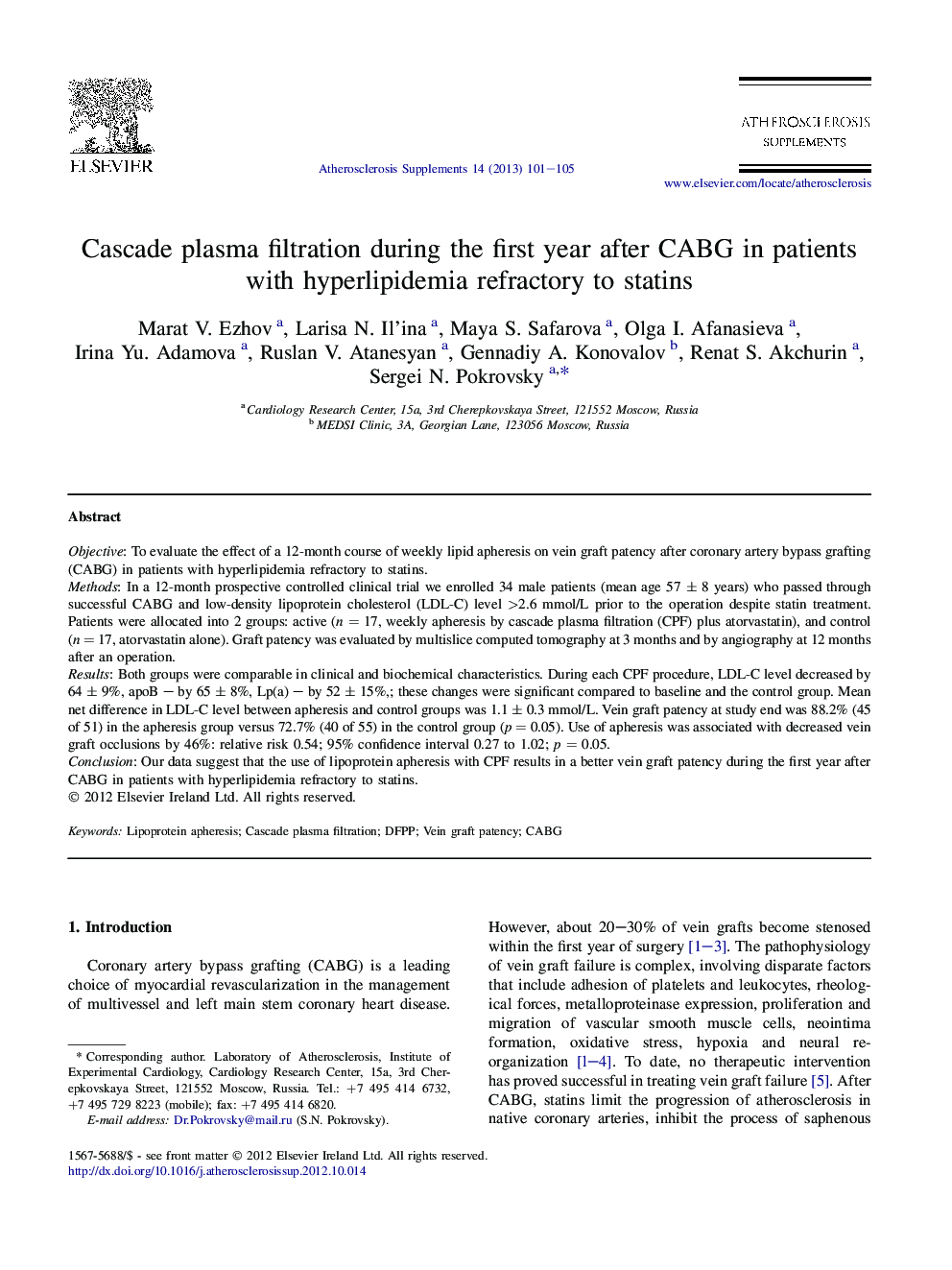| Article ID | Journal | Published Year | Pages | File Type |
|---|---|---|---|---|
| 2895641 | Atherosclerosis Supplements | 2013 | 5 Pages |
ObjectiveTo evaluate the effect of a 12-month course of weekly lipid apheresis on vein graft patency after coronary artery bypass grafting (CABG) in patients with hyperlipidemia refractory to statins.MethodsIn a 12-month prospective controlled clinical trial we enrolled 34 male patients (mean age 57 ± 8 years) who passed through successful CABG and low-density lipoprotein cholesterol (LDL-C) level >2.6 mmol/L prior to the operation despite statin treatment. Patients were allocated into 2 groups: active (n = 17, weekly apheresis by cascade plasma filtration (CPF) plus atorvastatin), and control (n = 17, atorvastatin alone). Graft patency was evaluated by multislice computed tomography at 3 months and by angiography at 12 months after an operation.ResultsBoth groups were comparable in clinical and biochemical characteristics. During each CPF procedure, LDL-C level decreased by 64 ± 9%, apoB – by 65 ± 8%, Lp(a) – by 52 ± 15%,; these changes were significant compared to baseline and the control group. Mean net difference in LDL-C level between apheresis and control groups was 1.1 ± 0.3 mmol/L. Vein graft patency at study end was 88.2% (45 of 51) in the apheresis group versus 72.7% (40 of 55) in the control group (p = 0.05). Use of apheresis was associated with decreased vein graft occlusions by 46%: relative risk 0.54; 95% confidence interval 0.27 to 1.02; p = 0.05.ConclusionOur data suggest that the use of lipoprotein apheresis with CPF results in a better vein graft patency during the first year after CABG in patients with hyperlipidemia refractory to statins.
